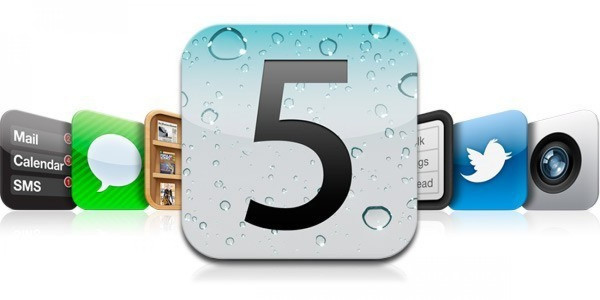Is Google Ice Cream Sandwich OS Better than iOS 5?

Less than a week after iOS 5 was released, Google unveiled its new Android 4.0 Ice Cream Sandwich. Both new mobile OSes offer plenty of impressive upgrades from previous versions. But is Ice Cream Sandwich (ICS) the tastier treat or does it melt in comparison to iOS 5.
Both OS borrowed some features from each other. Android 4.0 swiped its new way of making folders and organizing apps from a previous iOS. Apple's new notification center is also eerily similar to how Android handles notifications.
The two also offer cloud connectivity. Android is connected to Google Cloud and will sync Chrome bookmarks, pictures, contacts, apps and emails across Android 4.0 devices. But Apple's iCloud has pretty much the same functionality.
Both OSes tout better camera interfaces than previous versions, with new camera editing capacities on the two platforms. Google says it will have zero shutter lag along with a time lapse and panorama modes. iOS has tap to focus picture taking and pinch to zoom functionality, but it looks like ICS will have those features too. So it seems like Android 4.0 will have a few more camera options.
The two OS also have increased social media integration. iOS 5 users can tweet practically everything they are doing on the iPhone from web pages to their locations. However, Google's people cards system seems to have it beat. The system ties phone numbers and addresses on a user's phone to their friends' social networking pages. So you can check out someone's status update and call them from the same place.
ICS doesn't seem to have an answer to the revamped iMessage. It lets people text their other iOS friends for free with easy ways to share pictures, web pages and locations. ICS does have the new Android Beam, near-field communication feature. It lets users share content by holding phones back to back and then tapping the screen.
The new Android OS seems to have better ways to launch apps. It features a list of recently used apps that allows for easy multitasking, which Apple lacks. ICS also gives users better control over their data usage. It lets them set a limit on how much data their phone transmits and will disable data exchange when that limit is reached. It will help users avoid being charged by their carriers for going over their monthly data limit.
The Android also has a new Face Unlock security option that uses face recognition software to unlock the phone. Users just have to hold the camera up to their face and the phone will quickly unlock. But if light is too low, Android 4.0 will fall back on the old gesture unlock system.
But Apple wins out in the novelty department with Siri, Voice Assistant. Siri lets users control their phones with their voice to set the alarm, surf the web, get directions and ask silly questions. Sure, ICS has voice command functionality but it will have nowhere near the polish Apple put into Siri. However, Siri is only available on iPhone 4S.
When it comes to recommending one OS over the other, it comes down to the type of user you are. If you are pretty tech savvy, ICS is probably the way to go. Google gives you more tools on the phone and with the Android Market, ICS can probably match any function iOS 5 can offer. Also, Google doesn't gate keep its apps the way Apple does, offering a lot more options in where users can get their apps. You can only get iOS apps from Apple's App Store.
But for people who quite don't know what they are doing, iOS 5 offers a better out-of-the-box experience with very well integrated apps that work well together. Though power users can get plenty out of their iPhone as well.
© Copyright IBTimes 2024. All rights reserved.





















